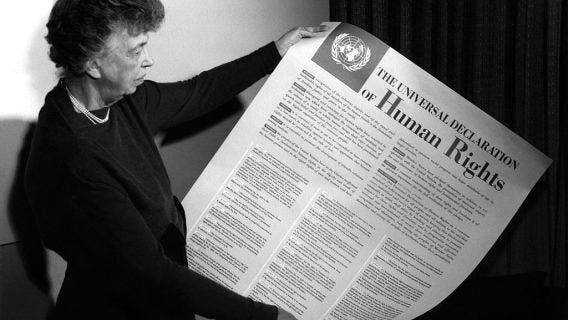Legal Literacy for Democracy
Sometimes a single journal is what’s missing.
Let me say something obvious—but maybe not obvious enough: you can’t build democracy on a foundation people can’t read.
Legal literacy to democracy is what code literacy is to the internet.
If only a few can read the code, the rest are just users—at the mercy of systems they can’t understand, let alone control.
Democracy is not a slogan. It’s a legal structure. It lives in constitutions, treaties, statutes, and the procedural muscle of law. But in countries like Iran, legal knowledge—particularly about human rights, criminal accountability, gender justice, and constitutional law—is not just hard to access. It’s actively erased, obscured, or disfigured by ideology. So people are expected to “defend their rights” while having no clear idea what those rights are, or how they’ve been violated, or how to frame demands in legally sound terms. It’s like being handed a scalpel and told to perform your own surgery—with no anatomy, no training, and no access to a hospital.
“Legal empowerment is not a luxury—it’s the very foundation of accountable governance.”
— Amartya Sen, Nobel Laureate in Economics
This is why legal literacy matters. And not just for lawyers.
We don’t just need legal experts to know the law. We need activists, students, teachers, journalists, and ordinary citizens to understand the architecture of justice—how it’s been built, how it’s been broken, and how it could be rebuilt. Without that shared grammar, we’re stuck between outrage and helplessness, between trauma and mythology.
That’s why, with colleagues at
(Iran Academia) and expert friends of ISSH, we’ve been talking and thinking about the possibility of launching a multilingual, open-access, peer-reviewed legal journal. Not a boutique publication for academics in exile. A functional tool. A credible source. A living, breathing space for legal knowledge that is accessible, professional, reliable, and politically independent. One that speaks both to the academic and to the activist. To the legislator and to the protester. To the ones who still dream of a future—while holding the memory of every law denied.Law is the most powerful semantic institution ever devised.
— I guess Pierre Schlag have said this.
This journal is more than just paper and ink (or pixels and PDFs). It’s a response to a vacuum we unfortunately see. A place where censored themes like transitional justice, international criminal law, gender-based persecution, or truth commissions are no longer whispers but structured discussions. Where translated frameworks—like the Rome Statute or Convention on the Elimination of Discrimination Against Women—can circulate freely, in Persian, to those who need them most.
“Knowledge of one’s rights is the first step toward defending them.”
— Mary Robinson, former UN High Commissioner for Human Rights
But let’s be frank: publishing is not magic. A journal won’t democratize a country. What it can do is break the isolation of legal minds scattered across borders and bureaucracies. It can translate the dense into the livable. The inaccessible into the teachable. The censored into the shared. And it can be the anchor for something deeper or more extensive: a knowledge ecosystem that builds literacy as a civic habit, not a specialist luxury.
Many initiatives have tried, and many are ongoing. Many valuable projects. But what’s missing is not good intentions. It’s structured, reliable, international, yet localized legal knowledge body. Continuity. A place where legal knowledge is not just published but curated, reviewed, contextualized, and translated into recommendations—without distortion, without propaganda, and without the elitist filter that too often separates law from life.
If we want democracy, we have to build the literacy that makes it legible.
And for that, we need to stop waiting for perfect constitutions, and start producing imperfect but living documents. Not just manifestos or white papers, but drafts. Proposals. Translations. Commentaries. Solid material, not floating ideas. This will be the missing piece of already existing efforts in the realm of activism and reporting and advocacy.
As one friend put it: “South Africa’s transitional justice framework was being written five years before apartheid fell.” The point isn’t comparison. It’s preparedness. And preparedness without legal infrastructure is a house without a foundation. Unfortunately, many political activists lack knowledge about legal procedures, frameworks, and the underlying foundations of their advocacy.
We can do better. For sure.
And, let’s remember:
If we don’t write our future in the language of law, someone else will write it for us—in the language of force.
We eagerly anticipate new collaborative opportunities with our community to create sustainable and impactful projects.




